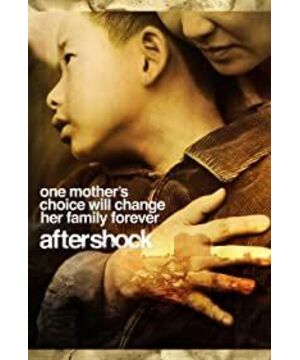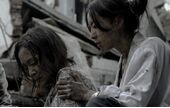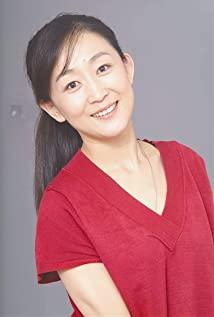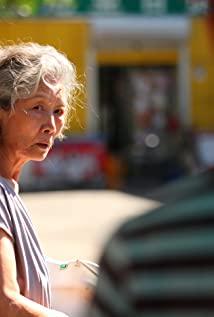I graduated from Sichuan University. I went home in the evening, dug out the address book issued when I graduated from the university, and called the phone numbers of my classmates who stayed in Sichuan. It’s been three years since I graduated, and I basically didn’t get in touch.
The phone basically can't get through.
Two days later, the head teacher of the high school, whom I hadn't contacted for seven years, found my phone number and asked me if I was still studying in Sichuan and whether I was safe. She said that she cried every day watching TV. Those children were so pitiful and pitiful.
There is only one voice in my heart, I want to go back to Sichuan.
At that time, what I wanted to save was myself.
I want to find myself in this disaster.
"Tangshan Earthquake" is probably also telling a story about self-exile and self-redemption. Scar, escape, forgive and be reborn. Helplessness in the face of natural disasters, and cohesion in the face of natural disasters. Just because disasters can destroy us so easily, we need to hug each other even more.
Two earthquakes, one is the cause, the other is the effect. In fact, I think this idea is not bad, but unfortunately other than that, there is nothing good to say.
Before it was released, a friend recommended the trailer, and the disaster was reversed, which was very shocking. Just like the bright ending of "Irrevocable" tearing happiness apart.
After watching the movie, I only felt good with a bowl of rice, so I added water and soaked it into a pot of porridge. fantasy? The rice is very thin.
Disaster movies are not about smashing people with big rocks and showing you, and the subject of scars is not about peeling off blood scabs, tearing open wounds and splattering blood to attract attention. Turning a disaster movie into a horror movie is really low-level, and turning an ethics drama into a soap opera is a bit too tacky.
A very feminist movie, crying and saving in the ruins, and finally standing up are women, and most male characters are just sex symbols. This is probably a play that Feng Xiaogang gave to his wife. It creates an unforgettable image of a Chinese mother. Without a solid script, relying on Xu Fan's cutting-edge acting skills alone is tantamount to killing a chicken and taking an egg. There is also a wretched character like Lu Yi who is so serious about playing soy sauce. After struggling in the entertainment industry for so many years, he was beaten back to before liberation by Feng Dao with a stick.
A lot of things are more tense than to say, but unfortunately, the movie has said it all. Fang Deng said, I climbed out of the dead pile. The adoptive mother said, don't hate me. The adoptive father said, you are afraid that I will worry, I am worried to death! The little daughter-in-law said, I don't go to France, I don't buy LV, don't think I married you for your money! The mother who made someone saw her daughter's leg shouted, I want my daughter's leg! Yuan Nier said, which man would take his life to love me? Fang Deng said, sorry, sorry, sorry.
It didn't need to be said. Every time I heard a hoarse line, every time I saw a performance that was too hard, I couldn't help but whisper in my heart. It's a pity, it's broken.
The most valuable thing about love is that it is right and proper, because it is an instinct rather than a value measurement and choice. The foundation of a family is love, and this kind of love is so valuable that it makes people unconscious, and that all sacrifices and devotions, giving and taking, are taken for granted. In this movie, except Fonda feels real about his mother's bastard appearance, there is a kind of estrangement between all the people. They don't seem to know each other very well, and they are very polite to each other.
The love-hate relationship between the mother and daughter must be placed in the context of the Wenchuan earthquake, with 100,000 people accompany the city wall to collapse, and watch the other mother's heart and the other daughter's legs be destroyed before they can start. Melt slowly.
Under the natural disaster, how much hatred can stand up, it is really not as convincing as the human tragedy of husband and wife rebelling against each other and father and son becoming enemies at the time of the Cultural Revolution.
One year, my parents taught me a lesson in the car, and I felt aggrieved and upset. Dad drank a bit of wine, and he rear-ended while overtaking a car at high speed. The moment the two cars collided, I subconsciously hugged Dad from the back seat, and immediately crossed over to protect my mother. Disaster is a momentary test of instinct, and disaster is not a slow and leisurely inventory of human nature.
Yes, no one can be happy by being a saint. In any case, Fang Deng must be unhappy, even if she doesn't hate, even if she loves everyone, but she doesn't let others love her.
Not being loved is her biggest scar.
But I always feel that Fang Deng can be hurt all her life, abandoned all her life, and dare not approach happiness all her life, but she first loves her parents unconditionally, and then she can relate to understanding and forgiveness.
The charm of movies lies in magnifying the extremes of human nature, selfishness and despicableness, or great love without words.
And this soap opera is not too ordinary, just too mediocre.
That year in Wenchuan, I finally returned to Sichuan. with the monkey. Allure of Love fulfilled Bai Liusu and Fan Liuyuan. I haven't been so shameless enough to let thousands of people make footnotes for my love. In the end they all faded away.
At that time, I realized one thing, no matter how deep the love and understanding are, the time is so far apart.
So sometimes I can understand what the movie is talking about.
Sometimes I also hope that decades later, I can say sorry to the people I have loved and hated.
View more about Aftershock reviews










